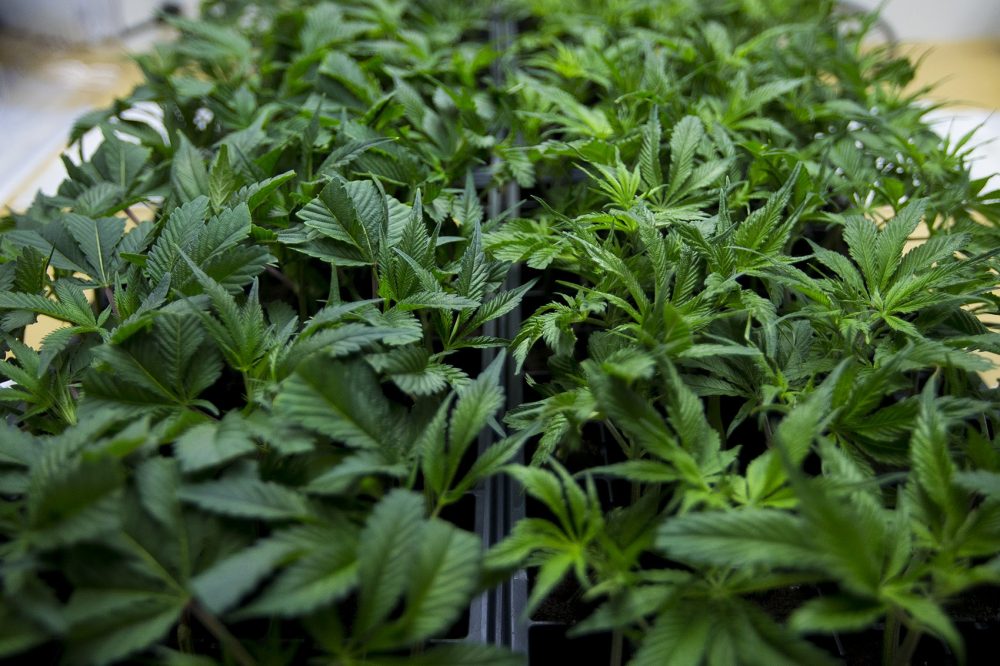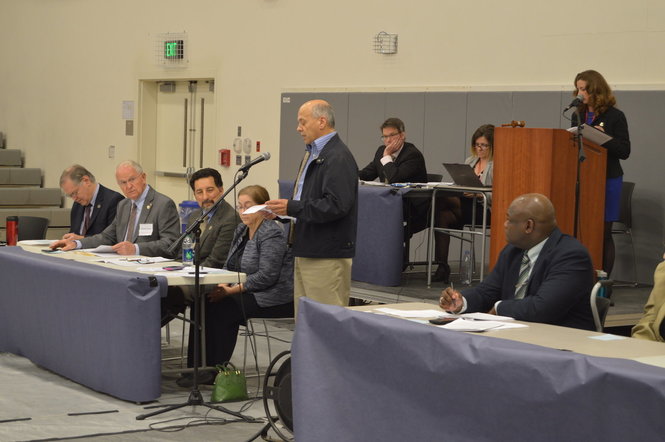BOSTON — Massachusetts’ top state legislative leaders on Monday expressed concern about Massachusetts U.S. Attorney Andrew Lelling’s policy of deciding whether to prosecute federal marijuana violations on a case-by-case basis.
“If you’re a person looking to come into Massachusetts and to open up a cannabis business, I’m not sure what type of message that sends, what type of security that gives you, or lack of security, I should say,” said House Speaker Robert DeLeo, D-Winthrop.
U.S. Attorney General Jeff Sessions last week rescinded Obama-era guidelines that essentially let states legalize recreational marijuana. Sessions said he would leave it up to U.S. attorneys in each district to decide how to enforce marijuana laws, since the drug remains illegal under federal law.
Lelling last week issued a somewhat ambiguous statement. He said his office “will aggressively investigate and prosecute bulk cultivation and trafficking cases, and those who use the federal banking system illegally.” But he did not specifically say whether he will prosecute marijuana businesses or consumption that is legal under state law.
In response to a request for clarification by marijuana advocates, Lelling issued another statement Monday in which he declined to give any blanket assurance that he would not prosecute those operating under state law.
Lelling said it is a federal crime to cultivate, distribute and possess marijuana. “I must proceed on a case-by-case basis, assessing each matter according to those principles and deciding whether to use limited federal resources to pursue it,” Lelling said. He said it is up to Congress to decide whether to immunize a whole group of people — such as those operating under Massachusetts’ marijuana guidelines — from federal law.
DeLeo and Acting Senate President Harriette Chandler, D-Worcester, both expressed concern about what that means for marijuana businesses, whose owners want certainty before opening in Massachusetts.
“It’s similar no matter what business you’re in. You’re looking to come into a state, you want to see what the business environment is all about,” DeLeo said. “You want certainty. But if you don’t know that you’re going to get that, that you may be prosecuted as soon as you get here …”
Chandler said Sessions’ actions have caused “a great deal of uncertainty.”
“It obviously determines whether people can go into the industry with some degree of certainty, and we want to make sure they can in this state,” Chandler said.
She noted that the success of the marijuana industry will impact the state budget, among other things. “If he takes it case-by-case, we’ll have to wait and see what this means, but we’re obviously watching it very carefully,” Chandler said.
Chandler and DeLeo spoke to reporters at the State House after their semi-regular meeting with Gov. Charlie Baker. Baker, a Republican, did not speak to the press after the meeting. But Baker said last week he thinks Sessions made the wrong decision.
Jim Borghesani, a spokesman for the Yes on 4 Coalition that advocated to legalize marijuana, said he is hoping for more clarity on how Lelling will treat criminals versus businesses operating under state law. “I don’t think that anybody who wants to potentially get into an industry is comforted by the fact that the U.S. attorney said they may be prosecuted for simply operating lawfully in that industry,” Borghesani said.
Borghesani said scuttling the memo that allowed states to legalize marijuana without users or businesses facing prosecution “created a vacuum that’s not doing anyone any good.”
credit:masslive.com













